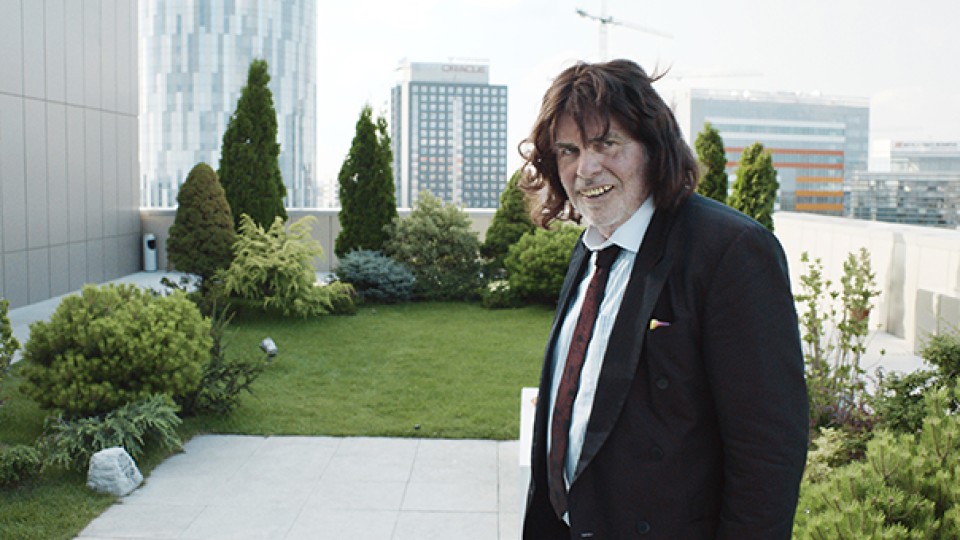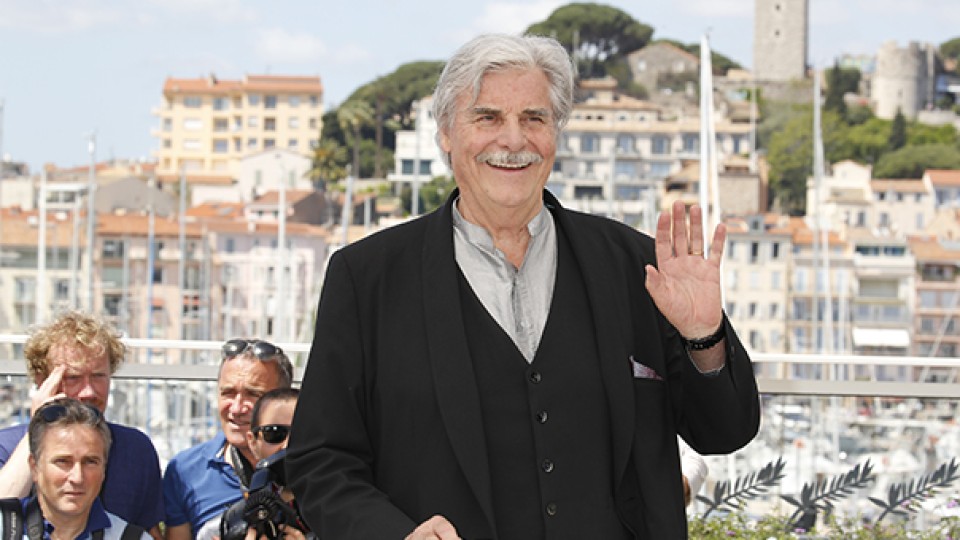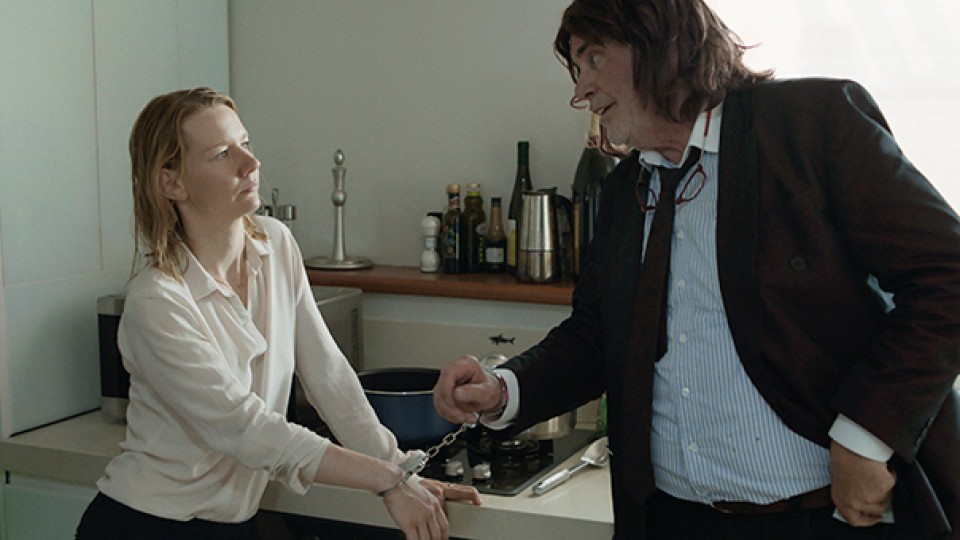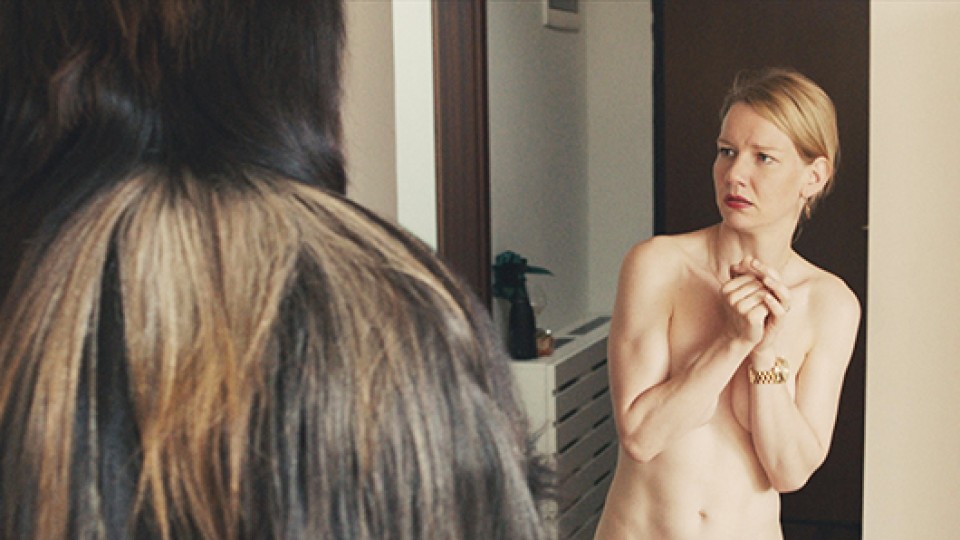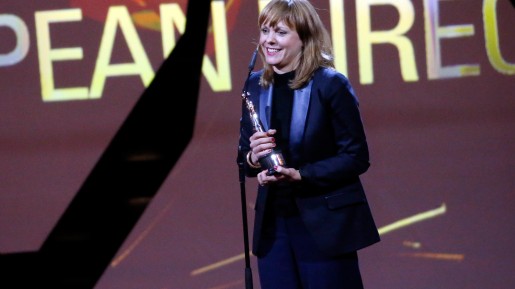Winfried Conradi misses his daughter, a successful businesswoman, so he pays an impromptu visit to her in Bucharest. When
she rejects him in his role as caring father he tries again, this time adopting an eccentric persona as he stages incongruous
encounters in an attempt to entice her out of her reserve and re-establish the tacit understanding they used to have. In Toni Erdmann German filmmaker Maren Ade creates a splendidly subversive romp; Peter Simonischek and Sandra Hüller provide memorable performances
in the leading roles. A conversation with Peter Simonischek.
You really feature twice in Maren Ade’s Toni Erdmann, playing both the rather eccentric piano teacher Winfried Conradi and the guise he adopts, self-proclaimed management coach
Toni Erdmann, in business-driven Bucharest. What challenges face an actor depicting two characters at the same time?
PETER SIMONISCHEK: I don't actually see it as a double role. It's one character who has the nerve to do something really crazy and then goes
through with it right to the end. He's hoping to get back in touch with his daughter, who is making a career for herself and
has completely slipped away from him, and apparently this kind of role play has some sort of tradition in their family. He
was certainly an affectionate father who used to tuck her up in bed at night and tell her stories, the kind of guy who got
a big kick out of making his little girl laugh. Now she's submersed herself in the life of a businesswoman, and he bursts
in on her just as she is about to put on a crucial presentation that will determine the course of her future career. During
the first few days of his official visit as her father things don't work out, and that makes them both very sad. She won't
open up, she rejects him, he feels inadequate and clumsy; his jokes fall flat, and he's a bit ashamed of himself. The great
thing is that he doesn't give up. Instead of going straight to the airport and flying back to Vienna, he finds a wig, puts
in a set of false teeth, slips on a pimp’s jacket and comes back into her life, this time claiming to be a crazy management
coach. He introduces himself as Toni… Erdmann. As he says that he hesitates for a minute: probably the name occurs to
him as he’s speaking. The interesting thing was that as an actor I didn’t have to play the part of Toni Erdmann;
I had to be Winfried, who was risking all the fuss and fears and embarrassment by adopting that persona.
How did you approach the role?
PETER SIMONISCHEK: When we arrived in Bucharest, Maren Ade picked us up at the airport in a stretch limousine. Not so we'd feel like VIPs, but
for fun. And when we got in she was sitting there dressed as a go-go girl, in a bikini with a coat over the top, cat-style
glasses and a pair of false teeth. She told us later she really wasn’t sure whether meeting us like that might be too
embarrassing; she was a bit ashamed of her own courage, but she still went through with it. And when it came to the point
that I had to transform Winfried into Toni, I remembered what it must have cost our director to take that risk. I have often
experienced situations in my life when I'm afraid of something, and the moment I recognize that, it’s absolutely clear
that I have to go through with it. I don't want to live with memories of being chicken. Are you scared of something? Then
do it! Winfried Conradi decides to turn himself into Toni Erdmann. It isn’t particularly challenging for an actor to
play Toni Erdmann. You learn to do things like that at drama school. For 50 years now I've been cycling to the theatre, where
I go up to my dressing room on the first floor, and hanging in there is a summer suit for Chekhov and a cape for Goldoni.
As an actor, you live with the fact that you have to get changed almost every evening and play somebody else. I don't mean
that abandoning all your inhibitions necessarily makes you the best actor, but that's your life; you earn a living by transforming
yourself into somebody else. In Toni Erdmann the situation is different, and you have to bring that out, otherwise it's just bland.
As soon as you complete the metamorphosis from Winfried to Toni Erdmann, and Ines sees what’s going on, there's a spoken
and an unspoken level between the two characters. It's one of the subtleties of the script, but you also need an actress who
can be your partner in exploring the various degrees of complicity there. How did working with Sandra Hüller develop?
PETER SIMONISCHEK: The casting involved a series of auditions. I read the script, and I was very keen to play the part: it was such a fascinating
script, so imaginative. I was immediately interested. I went to Berlin for auditions, and 10 days later I got a call from
Maren Ade saying she would like to work with me. So then there had to be more auditions to find a suitable daughter. I auditioned
with a number of fine actresses, and then Sandra Hüller walked in, and I felt immediately that she would be a great daughter.
Acting with Sandra is like playing tennis: if you have an outstanding partner, it also makes you raise your game, so you play
better. It's the same with film and theatre. Anybody who works with Sandra produces a better performance than usual. I think
she's particularly talented. For me it was a stunning moment when I saw the film for the first time, especially the scene
when Toni first appears. While we were acting we concentrated on avoiding each other's eye, apart from perhaps a quick glance.
After all, the whole thing is a lie, and you only look into the eyes of the person you're lying to when you’re "on top"
with the lie. And that's also when you’re most frightened that everything could collapse, if you can't hold the other
person's gaze. So the first time I saw that horror, that bewilderment in her face was on the screen, but she still doesn't
betray him, she doesn't say to the ladies: "Excuse me, that’s my father, I think I should take him to hospital." Just
fantastic.
How did Maren Ade work through the filming process with you? How much of the comedy was in the text, and how much of it developed
as you worked together?
PETER SIMONISCHEK: The scenes were written out, and so was the dialogue. Sometimes she left something out, and sometimes while we were filming
she would say: "Try saying it this way," if she had the feeling that something didn't quite come off. She was never judgmental.
She always added a sort of positive provocation to what we were doing. She would come up with all kinds of ideas. Once, for
example, she took me aside and said: "Say it in Italian." When I told her I couldn't, she said: "That doesn't matter. Just
pretend you can, and let's see what happens." That's what it was like on the set with her, with all kinds of ideas, including
some crazy things that you might normally write off as childish. The majority of that stuff couldn’t be used, but parts
of it could. Since film stock itself doesn't cost anything these days, the difference between rehearsal and filming isn't
as rigid as it used to be. That means a lot of work for us actors, but in the end it leads to better results. Our work was
a kind of jigsaw puzzle, and she was the only one who knew the result. Although I'm almost convinced that she herself only
became aware of the result over two years of careful, tender editing. She's incredibly good at that. She's musical, she knows
about timing and suspense, she knows what's indispensable. She knows that every form of eccentricity has to be rooted in something
concrete; it must be possible to trace everything that happens in the psyche. I was very fortunate to meet her.
What kind of experience is Cannes for a leading actor in a film that’s in competition?
PETER SIMONISCHEK: I like watching good football matches. I've seen games in the World Cup and Champions League, in stadiums. I'd say Cannes
is something like a cinema world championship. Wherever you look, it's all about cinema, about the film business. And when
you walk up the red carpet in your best outfit, it's like being on a parade ground. Everybody has to stand in line, and then
the actors and directors are given orders: "Stop!", "Go!", "Arrêtez!". But then you get impeccable group photographs, and
at the top you're welcomed by the Director of the Festival. That's great. I really enjoyed being in the audience for the world
premiere of the film, in that packed cinema, on the big screen. I was crying my eyes out during the film, because it was the
first time I'd really been able to enjoy it. And afterwards 10 minutes applause – you don't get that in the theatre.
That was just great. I really relished it.
Interview: Karin Schiefer
May 2016
Translation: Charles Osborne

